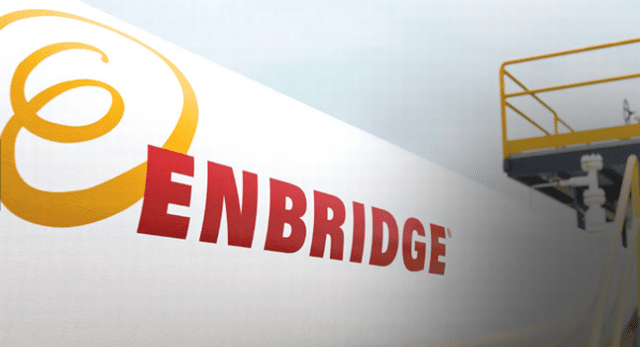Enbridge was forced to shut down one of its pipelines last week after 900 barrels of crude oil leaked at the Mokena tank farm near Chicago. The leak was discovered on Tuesday of last week although its cause remained undisclosed until this morning, when the Mokena fire department cited a hole in a 20-inch pipeline.
The leak forced the shutdown of Enbridge’s Line 14, a pipeline carrying 318,000 barrels of oil per day from Superior, Wisconsin to Mokena, Illinois.
Enbridge spokesman Graham White told the Chicago Tribune Friday that the spilled 37,000 gallons of crude were “contained within the tank berm,” causing little environmental impact. The U.S. Pipeline and Hazardous Materials Safety Administration (PHMSA) is investigating the accident.
The Mokena spill is yet another incident in a long list of Enbridge operational failures that have severely weakened the company’s public standing and professional reputation.
Enbridge was already forced to shut down Line 14 this past summer after more than 1000 barrels of crude spilled from the line onto a Wisconsin field. At the time of the spill PHMSA required Enbridge to fulfill a series of safety provisions before the line could be restarted. These provisions included aerial and foot patrols of key areas along the pipeline as well as a temporary reduction in operating pressure.
“Communities across the country deserve to know that the pipelines running underneath their homes, streets and businesses are safe,” said U.S. Transportation Secretary Ray LaHood, adding, “that is why we are requiring Enbridge to commit to such a thorough safety plan.”
PHMSA amended the set of safety provisions, requiring Enbridge submit a structural integrity plan of the company’s entire 1,900 mile (3,000 km) Lakehead Pipeline System of which Line 14 is a part. This additional request was necessary, said PHMSA, citing Enbridge’s 2010 Michigan spill into a tributary of the Kalamazoo River.
“Given the nature, circumstances, and gravity of this pattern of accidents, additional corrective measures are warranted,” said the additional order, signed by PHMSA‘s associate administrator for pipeline safety Jeffrey D. Wiese.
PHMSA outlined several minimum requirements before Enbridge could put Line 14 back in operation:
a. Organizational issues, including the promotion of a safety culture and creation of a safety management system;
b. Facilities response plan;
c. Control room management;
d. Priorities for pipe replacement;
e. Training;
f. In-line inspection result interpretation;
g. Current engineering and probability of failure modeling;
h. Leak detection systems;
i. Sensor and flow measuring and valve replacement;
j. Integrity verification;
k. Quality management system; and
l. Any other risk, task, issue or item that is necessary to promote and sustain the safety of its pipeline system.
It is unclear at this point if last week’s Mokena spill was related to Enbridge’s failure to maintain these minimum operational requirements.
Image of Mokena spill site: Source Enbridge.
However, Enbridge’s record of “pervasive organizational failures” and “complete breakdown of safety” is likely related. The company is currently paying for the most expensive pipeline spill in U.S. history.
“The July 2010 failure on Line 6B in Marshall, Michigan, and additional failures throughout all parts of the Lakehead System indicate that Respondent’s [Enbridge’s] integrity management program may be inadequate,” said Wiese. “PHMSA has communicated its longstanding concerns about this pattern of failures with Respondent over the past several years.”
Such concerns are also present in communities living along oil pipeline slated to carry tar sands crude to the Eastern seaboard.
Subscribe to our newsletter
Stay up to date with DeSmog news and alerts






